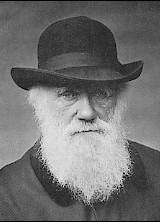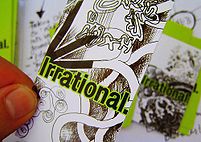Atheism and narcissism

In 2010, the Pew Research Forum indicated that 93.2% of the people of Thailand were Buddhists.[1]
Per capita atheists and agnostics in America give significantly less to charity than theists even when church giving is not counted for theists (See: Atheism and uncharitableness).
Narcissism is excessive love of oneself.
The Christian organization Got Questions Ministry declares about atheism and narcissism:
| “ | The very essence of all sin is self-determination. By denying the existence of a Creator, atheists can do whatever they please without concern for future judgment or eternal consequences (Matthew 12:36; Romans 14:12; 1 Peter 4:5; Hebrews 4:13). In the twenty-first century, self-worship has become culturally acceptable. Atheism appeals to a generation raised on evolutionary theory and moral relativism. John 3:19 says, “Light has come into the world, but people loved darkness instead of light because their deeds were evil.” If human beings are self-created, self-determined, and self-centered, then there is no moral law or lawgiver to whom they must submit. There are no absolutes and no one to whom they are ultimately accountable. By adopting such a mindset, atheists can focus on seeking pleasure in this life alone.
The attitude is nothing new, but the changing cultural norms are making it more openly acceptable. Romans 1:18–31 details the results of this rejection of God’s authority. Verse 28 says, “God gave them over to a depraved mind, so that they do what ought not to be done.” Our world is seeing the results of that depravity. What atheists call “enlightenment,” God calls foolishness. Verses 22–23 say, “Although they claimed to be wise, they became fools.” Since the “fear of the Lord is the beginning of wisdom” (Psalm 111:10; Proverbs 1:7; 9:10), then the denial of the Lord (atheism) is the beginning of foolishness.[2] |
” |

A Christian article entitled Atheism and Narcissism, Never Far Apart states:
| “ | Let’s face it, as long as narcissism exists, there will be atheism. Atheism results from the desire to be completely self-reliance – even excluding God (the obvious end consequence of which is ultimately death. It’s inescapable) .
As an opposite extreme, Christianity is the pursuit of complete reliance and self-denial (the end result being eternal life and a greater purpose in this current life). These two viewpoints are total opposites and can never be reconciled together. In my opinion, that’s why atheists hate Christians… because they know that their own life is short and will ultimately be meaningless. [4] |
” |
In his essay The Triumph of the Gospel of Love, Monk Themistocles Adamopoulo wrote:
| “ | In variant degrees, it appears from our extant historical evidence, that the early Church genuinely attempted to apply this Gospel of love in its life and witness. How then was it expressed in praxis during the first four centuries of the Church's existence?
Christians undertook a great deal of almsgiving to the poor not only to fellow believers but to pagans as well. So amazed was the anti-Christian pagan emperor Julian the Apostate (361-363 AD), with the sheer benevolence and excellence of Christian philanthropy that he was forced to admit in wonder their superiority over paganism in matters of charity:
Widows and orphans in particular became the recipients of special financial support and respect. This created a most favourable impression upon the pagan world. The sick, the infirm and the disabled also became an integral part, wherever possible, of the Church's obedience to Christ's commandment to love (Matt 25:35-36). Indeed in times of contagious epidemics raging through the cities of the Mediterranean world, ancient documentary evidence suggests that Christians were more likely to stay on to care and visit the stricken rather than attempt to flee as the pagans were often inclined to do.[5] |
” |
Per capita atheists and agnostics in America give significantly less to charity than theists even when church giving is not counted for theists (See: Atheism and uncharitableness).
Contents
- 1 Antitheism and narcissism: University of Tennessee study
- 2 Study: General public believes atheists are more narcissistic
- 3 Atheist factions and narcissism
- 4 Cults of personalities and atheistic communist leaders
- 5 LeVeyan Satanism and egoism/self-deification
- 6 Atheism, arrogance and narcissism
- 7 Secular leftists, envy and narcissism
- 8 Atheism, intolerance and narcissism
- 9 Atheists, projection and narcissism
- 10 Atheism, magical thinking and narcissism
- 11 Atheism, Social Darwinism and narcissism
- 12 See also
- 13 External links
- 14 Notes
Antitheism and narcissism: University of Tennessee study
See also: Atheism and dogmatism and Atheism and open-mindedness
According to a study conducted by researchers at the University of Tennessee:
| “ | If any subset of our non-belief sample fit the “angry, argumentative, dogmatic” stereotype, it is the Anti-Theists. This group scored the highest amongst our other typologies on empirical psychometric measures of anger, autonomy, agreeableness, narcissism, and dogmatism while scoring lowest on measures of positive relations with others.[6] | ” |
Study: General public believes atheists are more narcissistic

The abstract for the 2017 journal article The perception of atheists as narcissistic which was originally published in the journal Psychology of Religion and Spirituality indicates:
- "Research into prejudice toward atheists has generally focused on broad characteristics. Some of these characteristics (i.e., self-centeredness, elitism, individualism, and immorality) indicate a possible prejudice of narcissism. To investigate this specific prejudice, the present study used the Narcissistic Personality Inventory (Raskin & Terry, 1988), the Hypersensitive Narcissism Scale (Hendin & Cheek, 1997), and the Interpersonal Reactivity Index (Davis, 1983), which were adjusted so that the items of each measure were changed from first-person statements to third-person statements to measure participants’ perceptions. Participants (N = 359) were given a description of a fictitious individual named Alex, portrayed to them as either male or female and atheist or religious, or male or female with no additional information (creating 6 experimental groups), and then asked to complete the measures as they thought the individual would. Participants consistently rated atheists higher on narcissism measures and lower on empathy measures, indicating a perception of greater narcissism and a lack of empathy compared with religious individuals and controls. Participants’ perceptions of Alex were affected by his or her gender in conjunction with his or her religion, and the 2 variables of gender and religion interacted to create different patterns of perception. In general, interactions indicated differences in the way religion and gender impacted the perception of individuals as narcissistic, affecting perceptions of males more than females. The results are consistent with research findings that perceptions of atheists tend to be negative and prejudicial. This study highlights the need to compare perceptions with actual personality differences between atheists and religious individuals."[8]
Atheist factions and narcissism

See also: Atheist factions and Atheism and intolerance and Atheism and mockery
An article at Atheist Nexus says about the divisiveness within modern atheism caused by the New Atheism and Atheism plus movements:
| “ | But, the New Atheism and Atheism+ movements seek to tag on guidelines for being a proper atheist. And if you do not conform, you are ridiculed, ignored, or sometimes shunned. This type of behavior is very much puzzling to atheists around the globe, wondering why a difference of opinion on whether religion should be stamped out or permitted would preclude one from one form of atheism versus another. There is only one form of atheism!
"The answer to that question was provided by Freud over a century ago. 'A narcissism of small differences.' This is what plagues the atheists of today.[11] |
” |
For more information, please see:
Cults of personalities and atheistic communist leaders
See also: Atheist cults
There were cults of personality surrounding communist, atheist leaders or thought leaders such as Mao Zedong, Vladimir Lenin, Karl Marx, Joseph Stalin, Kim Il-sung and Kim Jong-un.
On the other hand, the Apostle Paul told his fellow Christians to be a follower of Christ and not himself (1 Corinthians 3:4). An angel told the Apostle John to not fall down before him (Revelation 19:10).
LeVeyan Satanism and egoism/self-deification
See also: Atheism and satanic deception
LaVeyan Satanism is a form of atheism which extolls the values of Satan which are described in the Bible. It is a very prideful and hedonistic worldview. Some specific characteristics of Leveyan Satanism is that it incorporates egoism, self-deification, the occult/magic, Social Darwinism and naturalism. It was found by Anton LeVey in 1966. The Church of Satan was also founded by LeVey.
Atheism, arrogance and narcissism

The picture of Nietzsche above was taken in 1899. Nietzsche died in 1900.
See also: Atheism and arrogance
Arrogance and a lack of regard for the feelings of others are typical characteristics of narcissism.[12] One of the common and well-founded charges against atheists is their arrogance and presumptuousness (see: Atheism and arrogance).[13]
Secular leftists, envy and narcissism
See also: Secular left
According to Dr. Ananya Mandal, "Envy: Due to their sense of being superior to others, narcissists may feel insecure when faced with another person’s ability, which they may try to belittle by demonstrating contempt or dismissal of it."[14]
Politically, atheists tend to lean towards the left (see: Atheism and politics). And the left has a reputation of being envious and angry.[15]
Atheism, intolerance and narcissism
According to Dr. Ananya Mandal:
| “ | A sense of being perfect and superior means narcissists often expect to receive favorable treatment and for people to admire and agree with their opinions or actions. Failure to comply may be perceived as an attack on their authority and superiority. A person who flouts their authority is often considered to be a difficult or awkward person by the narcissist, who will proceed to demean them or their opinion, especially in front of others. Defiance can also trigger anger in the narcissist which is referred to as “narcissistic rage".[16] | ” |
Atheists have earned a reputation for intolerant and for being thin-skinned (see: Atheism and intolerance and militant atheism and Atheist whining).
Atheists, projection and narcissism
According to Dr. Ananya Mandal:
| “ | Shamelessness – Shame is the underlying factor in all cases of unhealthy narcissism. In a healthy person, shame is processed in a normal manner, whereas narcissists have difficulty processing this feeling in a healthy way. Narcissists also tend to inflict shame on other people, a concept referred to as projection.[17] | ” |
Despite the many instances of atheists acting hypocritically and atheism failing to provide a basis for objective morality, atheists commonly accuse the religious of being hypocritical (see: Atheist hypocrisy and Atheism and morality and Atheism and the problem of evil).
In addition, secular leftists/social justice warriors commonly engage in projection.[18]
Atheism, magical thinking and narcissism
See also: Atheism and irrationality
According to Dr. Ananya Mandal:
| “ | Magical thinking – Narcissists tend to perceive themselves as perfect and flawless. The distorted thinking and illusion that causes narcissists to feel this way is referred to as magical thinking.[20] | ” |
Two studies indicate that the irreligious are more likely to exhibit superstitious thinking (See: Irreligion and superstition).
A common and legitimate criticism of the atheist worldview is that atheism is irrational.[21] In short, atheism is a fundamentally incoherent worldview with a number of inconsistencies.[22] See also: Atheism and irrationality
Furthermore, secular leftists commonly engage in historical revisionism in order to whitewash the misdeeds of their fellow leftists and to distort the historical record to fit their worldview (see: Atheism and historical revisionism).
Atheism, Social Darwinism and narcissism

Since World War II a majority of the most prominent and vocal defenders of the evolutionary position which employs methodological naturalism have been atheists and agnostics (see also: Causes of evolutionary belief)[24]
Sam Vankin in his book A to Z of Narcissism and Narcissistic Personality Disorder Encyclopedia: The Narcissism Bible writes:
| “ | The doctrine of Social Darwinism and the advent of moral relativism and deconstruction did away with ethical absolutism. The thick line between right and wrong has thinned and blurred and sometimes vanished.
Evil nowadays is merely another form of entertainment, a species of pornography, a sanguineous art. Evildoers enliven our gossip, color our drab routines and extract us from dreary existence and its depressive correlates. It is a little like collective self-injury.[25] |
” |
In July of 2000, Creation Ministries International reported:
| “ | For years, many people have scoffed at any suggestion that the evils in society could be linked with the teaching of the theory of evolution. But new research has confirmed what Bible-believers have known all along—that the rising acceptance of Darwin’s theory is related to declining morality in the community.
The research survey of 1535 people, conducted by the Australian National University, revealed that belief in evolution is associated with moral permissiveness. Darwin himself apparently feared that belief in evolution by the common man would lead to social decay. The survey showed that people who believed in evolution were more likely to be in favour of premarital sex than those who rejected Darwin’s theory. Another issue which highlighted the contrast between the effect of evolutionary ideas and that of biblical principles was that Darwinians were reported to be ‘especially tolerant’ of abortion. In identifying the primary factors determining these differences in community attitudes, the author of the research report, Dr Jonathan Kelley, said: ‘The single most important influence after church attendance is the theory of evolution.’[26] |
” |
See also:
See also
External links
- Why Narcissists are Like Atheists! - video
- Atheism, Narcissism and Why None are Righteous by Nate Sauve
- Alister McGrath on Richard Dawkins - atheism is simpleminded narcissism? by Denyse O'Leary
Notes
- ↑ Pew Research Center - Global Religious Landscape 2010 - religious composition by country.
- ↑ Causes of atheism, Got Questions Ministry
- ↑ The Triumph of the Gospel of Love by Monk Themistocles ((Adamopoulo)
- ↑ Atheism and Narcissism, Never Far Apart. The Rob Project
- ↑ The triumph of the Gospel of love by Monk Themistocles Adamopoulo
- ↑ University Researchers Say There Are Six Typologies of Non-Believers. Which One Are You?, Friendly Atheist blog
- ↑ The perception of atheists as narcissistic, Dubendorff, S. J., & Luchner, A. F. (2017), Psychology of Religion and Spirituality, 9(4), 368-376.
- ↑ The perception of atheists as narcissistic, Dubendorff, S. J., & Luchner, A. F. (2017), Psychology of Religion and Spirituality, 9(4), 368-376.
- ↑ Dawkins: Mock them. Ridicule them! In public
- ↑ Dawkins: Mock them. Ridicule them! In public
- ↑ The Narcissism Of Small Differences: Freud's Accidental Diagnosis Of The Problem With Atheism Today, Atheist Nexus
- ↑ Seven Deadly Sins of Narcissism by Dr. Ananya Mandal, MD
- ↑
- Putting the Atheist on the Defensive by Kenneth R. Samples, Christian Research Institute Journal, Fall 1991, and Winter 1992, page 7.
- The Presumptuousness of Atheism by Paul Copan, Christian Research Institute
- The arrogance of the atheists: They batter believers in religion with smug certainty - New York Daily Times by the atheist S.E. Cupp, December 29, 2010
- How atheists became the most colossally smug and annoying people on the planet by atheist Brendan O'Neill, The Telegraph, August 14th, 2013
- How anger fuels atheistic arrogance - Christian Post By Dan Delzell, October 17, 2011
- Militant atheist arrogance and pride - Militant Atheism Exposed website
- ↑ Seven Deadly Sins of Narcissism by Dr. Ananya Mandal, MD
- ↑
- Why Is the Angry Left So Angry? By Robert Tracinski, The Federalist
- Envy No Vice for Leftists by Jack Kerwick, Beliefnet.com
- ↑ Seven Deadly Sins of Narcissism by Dr. Ananya Mandal, MD
- ↑ Seven Deadly Sins of Narcissism by Dr. Ananya Mandal, MD
- ↑ Fighting Back Against the SJWs By Christopher Chantrill, American Thinker on Facebook
- ↑ Atheism by Matt Slick
- Putting the Atheist on the Defensive by Kenneth R. Samples, Christian Research Institute Journal, Fall 1991, and Winter 1992, page 7.
- Atheists don’t own reason by Tom Gilson
- Why the Burden of Proof is on the Atheist by Professor Ralph McInerny
- Theism, Atheism, and Rationality by Alvin Plantinga
- The Irrational atheist: Dissecting the Unholy Trinity of Dawkins, Harris, and Hitchens by Vox Day, Benbella Books, Dallas, TX, 2008 , ISBN-10: 1933771364; ISBN-13: 978-1933771366
- ↑ Seven Deadly Sins of Narcissism by Dr. Ananya Mandal, MD
- ↑ Atheism by Matt Slick
- Putting the Atheist on the Defensive by Kenneth R. Samples, Christian Research Institute Journal, Fall 1991, and Winter 1992, page 7.
- Atheists don’t own reason by Tom Gilson
- Why the Burden of Proof is on the Atheist by Professor Ralph McInerny
- Theism, Atheism, and Rationality by Alvin Plantinga
- The Irrational atheist: Dissecting the Unholy Trinity of Dawkins, Harris, and Hitchens by Vox Day, Benbella Books, Dallas, TX, 2008 , ISBN-10: 1933771364; ISBN-13: 978-1933771366
- ↑
- 10 atheist inconsistencies
- William Lane Craig on Scientific Naturalism - video
- Why atheism is inconsistent by Dr. Scott Sullivan (podcast), August 19th, 2014
- The Summit Lecture Series: Scientific Naturalism Worldview with J.P. Moreland, part 1
- The Summit Lecture Series: Scientific Naturalism with J.P. Moreland, part 2
- The Summit Lecture Series: Scientific Naturalism with J.P. Moreland, part 3
- The Summit Lecture Series: Scientific Naturalism Worldview with J.P. Moreland, part 4
- The Incoherence of Atheism - video by Ravi Zacharias
- The incoherence of atheism
- More on inconsistent atheists
- The Atheist's Fatal Flaw: Exposing Conflicting Beliefs by Norman Geisler and Daniel J. McCoy, Baker Publishing Group, June 2014
- ↑ http://plato.stanford.edu/entries/teleological-arguments/notes.html
- ↑
- Dr. Don Batten, A Who’s Who of evolutionists Creation 20(1):32, December 1997.
- Jonathan Sarfati, Ph.D.,F.M., Refuting Evolution, Chapter 1, Facts and Bias
- ↑ A to Z of Narcissism and Narcissistic Personality Disorder Encyclopedia: The Narcissism Bible by Sam Vankin, Narcissus Publishing, Dec 13, 2014
- ↑ Morals decline linked to evolution
